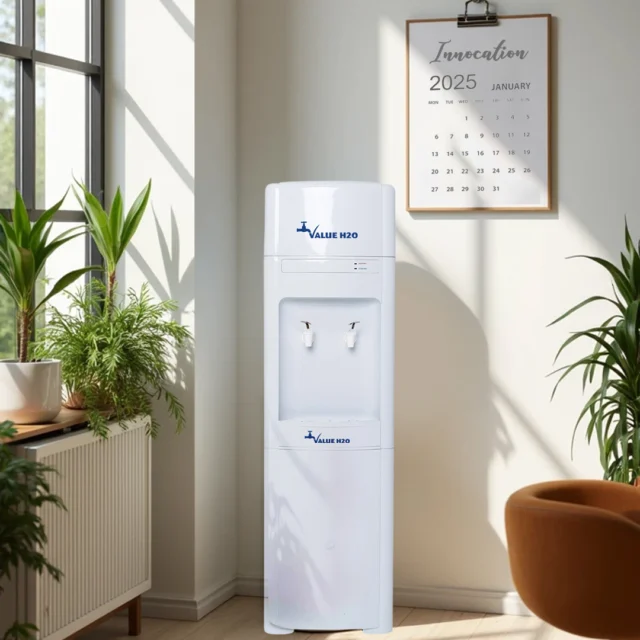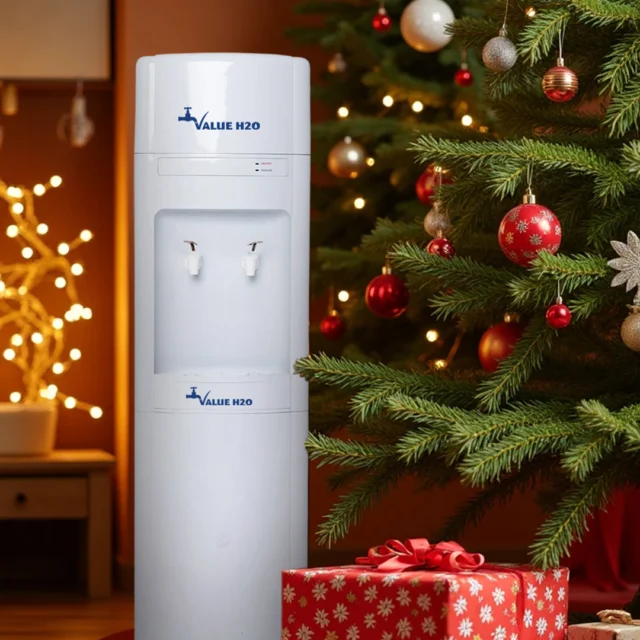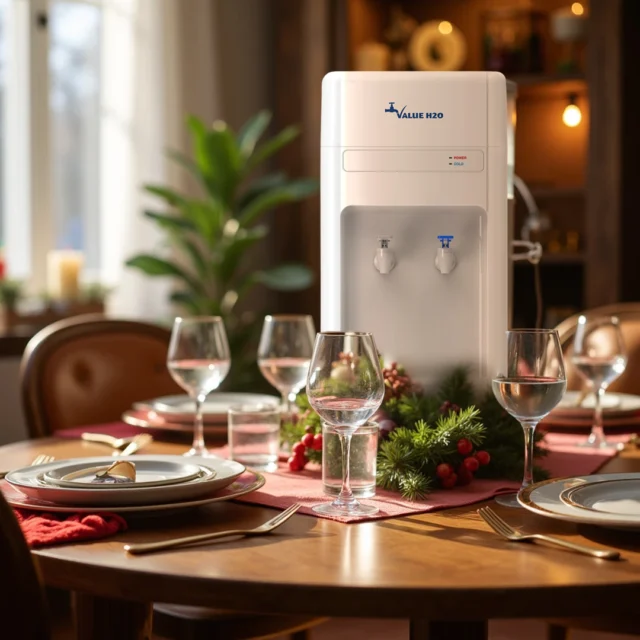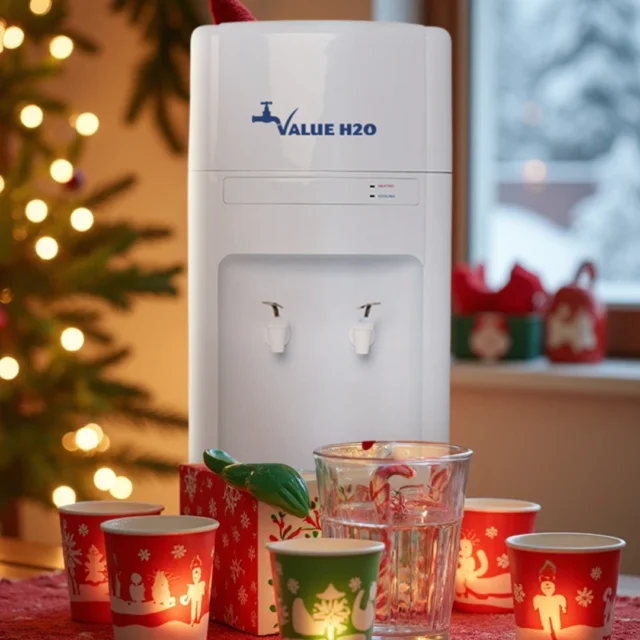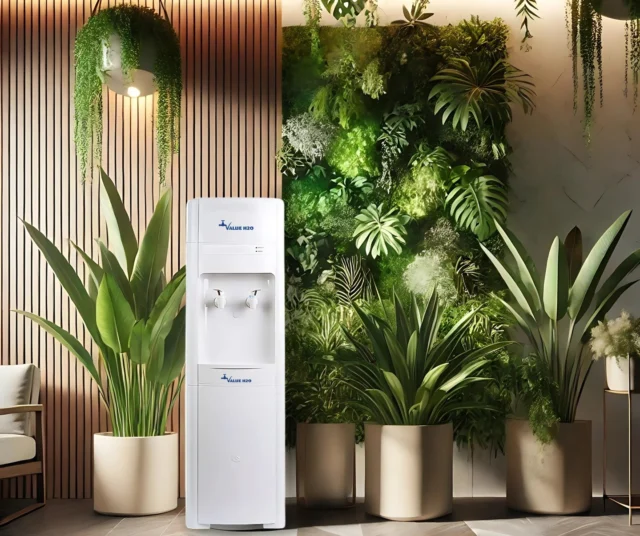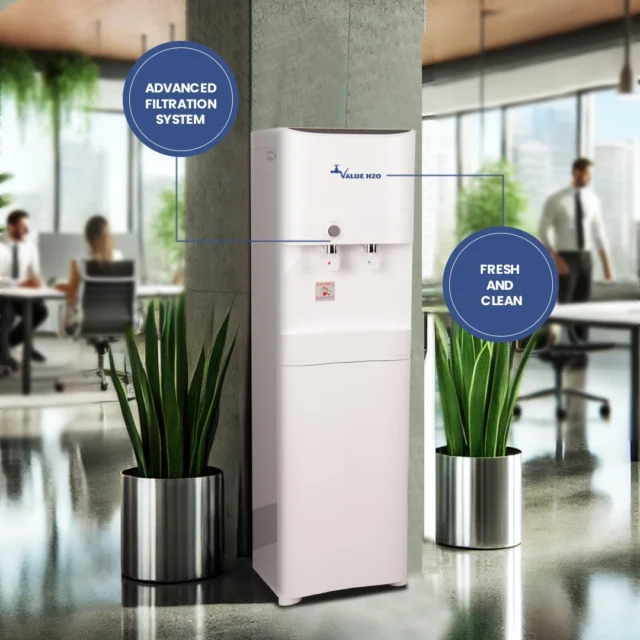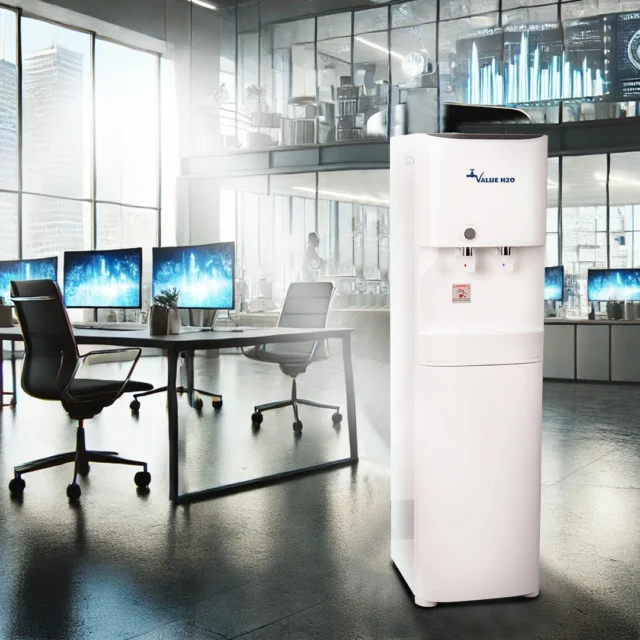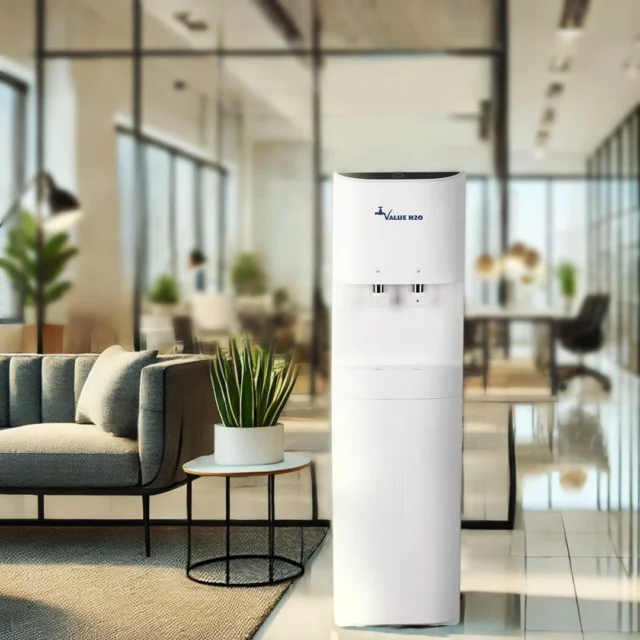
Introduction
As awareness of environmental issues continues to grow, many individuals and businesses are looking for practical ways to reduce their carbon footprint. One of the simplest yet impactful changes is switching to water coolers for hydration needs. Water coolers offer a sustainable alternative to bottled water, helping to significantly reduce carbon emissions associated with plastic production, transportation, and waste. In this article, we’ll explore how water coolers can help reduce your carbon footprint and contribute to a healthier planet.
The Environmental Cost of Bottled Water
Bottled water may seem convenient, but it carries a heavy environmental price. The production of plastic bottles requires large amounts of fossil fuels, contributing to greenhouse gas emissions. Additionally, the transportation of bottled water, often over long distances, further adds to the carbon footprint. Opting for a filtered water cooler provides a convenient and eco-friendly alternative, reducing the need for single-use plastic bottles. Once consumed, these bottles typically end up in landfills or, worse, pollute oceans and waterways. By choosing a water cooler, you can drastically reduce your reliance on bottled water and lower the overall environmental impact of your hydration habits.
Cutting Carbon Emissions with Water Coolers
Water coolers are a great alternative for reducing carbon emissions. For businesses and households that rely on bottled water deliveries, switching to a water cooler can eliminate the need for transportation and packaging. Plumbed-in water coolers, which connect directly to the existing water supply, offer a continuous flow of fresh water without the environmental cost of regular deliveries. This helps cut down on carbon emissions from transportation, making water coolers an environmentally friendly hydration solution.
Energy Efficiency in Modern Water Coolers
In addition to reducing carbon emissions by eliminating bottled water deliveries, modern water coolers are designed to be energy-efficient. Many models come equipped with energy-saving modes that minimise electricity usage during off-peak hours, or when the cooler isn’t in use. Modern water coolers provide both chilled and hot water on demand, making them versatile for various needs. Some water coolers are also built with advanced insulation to keep water cool without consuming excessive energy. Choosing an energy-efficient water cooler can help reduce your overall energy consumption and, in turn, lower your carbon footprint.
Supporting a Sustainable Office with Water Coolers
For businesses, water coolers are an essential part of creating a sustainable office environment. Having a filtered water cooler not only provides clean and safe drinking water but also eliminates the need for traditional water filter jugs, offering a more convenient and efficient solution. By reducing the need for bottled water, businesses can significantly lower their plastic waste, energy use, and carbon emissions. Water coolers also promote a refillable culture, encouraging employees to bring reusable bottles, which helps further reduce plastic consumption. Installing water coolers aligns with broader sustainability initiatives and demonstrates a commitment to eco-friendly practices.
The Role of Water Filtration in Carbon Reduction
Many water coolers are equipped with filtration systems that provide clean, filtered water directly from the tap. Providing healthy drinking water through these coolers is essential for maintaining a productive and healthy office environment. This eliminates the need for bottled water, which often has a significant carbon footprint due to the production and disposal of plastic bottles. By using filtered tap water, businesses and individuals can enjoy the same high-quality hydration while dramatically reducing their environmental impact. Advanced filtration systems also ensure that water is safe and free from contaminants, providing an eco-friendly and healthy alternative to bottled water.
Long-Term Cost Savings and Environmental Benefits
While the environmental benefits of water coolers are clear, they also offer long-term cost savings. By eliminating the need for bottled water, businesses can save on the cost of regular deliveries and waste management. The reduction in plastic waste and energy use also helps cut down on overall operational costs. Over time, these savings, combined with the reduced carbon footprint, make water coolers a smart investment for businesses and households alike.
Reducing Waste Through Refillable Bottles
Water coolers naturally encourage the use of refillable water bottles, which significantly reduces plastic waste. Having a water cooler that provides ice-cold water enhances the experience, making it more refreshing and convenient, especially after physical activities or during office breaks. In offices and public spaces, the shift to reusable bottles helps to foster a culture of sustainability. By refilling water bottles at a cooler instead of using disposable plastic bottles, individuals can cut down on waste while contributing to a cleaner environment. The widespread adoption of refillable bottles can make a substantial difference in reducing plastic waste and, ultimately, carbon emissions.
Eliminating Bottled Water’s Hidden Emissions
Bottled water has hidden environmental costs that go beyond just plastic waste. Connecting a water cooler to the main water supply offers a low-maintenance solution that further reduces environmental impact by eliminating the need for plastic bottles and frequent refills. The entire lifecycle of a plastic bottle—from production to transportation to disposal—contributes to carbon emissions. Manufacturing processes, fuel consumption for deliveries, and the breakdown of plastic in landfills all play a role in increasing the carbon footprint of bottled water. Water coolers eliminate many of these hidden emissions, providing a low-impact hydration solution that reduces overall environmental harm.
Conclusion: Making a Positive Impact with Water Coolers
Reducing your carbon footprint doesn’t have to be complicated. Sometimes, it’s the small, everyday changes that make the biggest difference. By choosing a water cooler over bottled water, you’re taking a significant step toward reducing your carbon emissions, conserving energy, and promoting sustainability. Whether at home or in the office, water coolers provide an eco-friendly solution that helps reduce plastic waste, cut carbon emissions, and support a healthier planet. It’s a simple change with lasting environmental benefits.
FAQs
Are water coolers environmentally friendly?
Yes, water coolers are environmentally friendly because they reduce the need for single-use plastic bottles, encourage the use of refillable bottles, and eliminate the carbon emissions associated with bottled water deliveries. Having a filtered water cooler provides the added benefit of supplying both filtered water and spring water, offering convenience and quality for homes and offices. Many modern water coolers are also energy-efficient, minimising electricity consumption, making them a sustainable choice for homes and offices.
How does reducing water use reduce your carbon footprint?
Reducing water use lowers your carbon footprint by conserving the energy required for water treatment, transportation, and heating. Using less water also decreases the demand for energy-intensive processes involved in water distribution, ultimately reducing greenhouse gas emissions. Water coolers with energy-efficient features further reduce this environmental impact by using minimal resources to deliver fresh water.
What are the issues with water coolers?
While water coolers offer many environmental benefits, some issues include the need for regular maintenance and filter replacement to ensure water quality. Older or less efficient models may consume more electricity, leading to higher energy costs. Additionally, without proper cleaning, water coolers can become breeding grounds for bacteria, so regular hygiene practices are essential.
What is the top option for reducing your carbon footprint?
The top option for reducing your carbon footprint is to focus on energy efficiency and reducing waste. Having a water cooler connected to the main water supply provides a low-maintenance solution for hydration in workplaces. Switching to energy-efficient appliances, reducing single-use plastics (such as water bottles), and using renewable energy sources are all effective strategies. Opting for a plumbed-in water cooler that uses filtered tap water is one such solution, as it eliminates the need for bottled water and reduces associated emissions.
